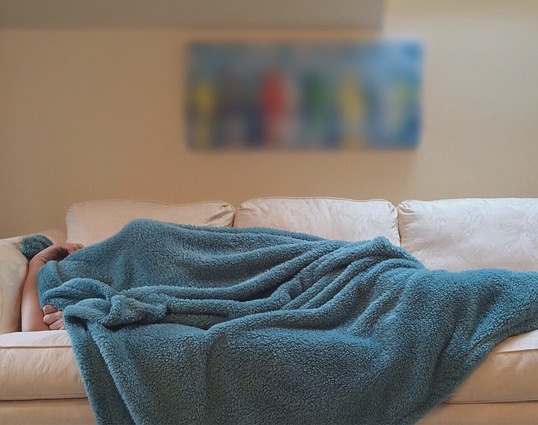Why Sleep Is So Important For Revision
The amount of all nighters we’ve all pulled at some point to learn something when the deadline is looming is something everyone can relate to. Getting enough hours of good quality sleep however plays a bigger role than most people realise especially when it comes to our studies.
Sleep isn’t an option but crucial for revision.
Sleep is crucial for memory formation. We have a circadian rhythm which is our biological clock for helping us sleep. Once we fall asleep we progress through the 5 stages of sleep; the first 4 stages are known as NREM sleep and are crucial for physical recovery as this is when the body repairs us and releases growth hormones. The final stage however is known as REM sleep and it is during this stage that the neurotransmitters in the brain regain their sensitivity. Neurotransmitters are chemicals that transmit signals within our brain – think of them as the oil in a car engine that acts as a lubricant. Without them working at their best, we struggle to think clearly which is why sleep deprivation makes it incredibly difficult to concentrate or focus. So it’s really important you get plenty of sleep.
We complete 1 sleep cycle every 90 minutes and in one night we pass through all 5 stages about 4-5 times approximately dependent on how long we sleep. If however we don’t get enough time to sleep or it is disturbed, it means we don’t get enough of the physical or mental recovery we need to function at our best the following morning.
Revise early rather than late.
If you’re going to revise then science dictates the best point to do this is always in the morning. If you leave it until the evening, you will already be mentally quite tired as the neurotransmitters within your brain won’t be functioning at their best. Therefore it’s best to try and learn while they are at their peak before they become desensitised. The morning is the best time to do this and it’s crucial you go to sleep early the night before to get at least 7-8 hours of good undisturbed sleep.
This means going to sleep early and waking up early and getting a crack on with revision. Some theories for sleep also propose that REM sleep is important for the consolidation of memories and this becomes evidently more important when revision is a factor.
Keep your phone out of sight.
It’s really hard to not use a mobile phone for a few hours and one bad habit students have is placing it next to their bed or within visible sight. Light from the phone our bodies detect (or any electrical item or even sunlight) stops the production of melatonin which is our body’s sleep hormone. This can cause disturbed sleep as it tells our body it’s time to wake up and if this happens, we’ve not been able to sleep long enough to consolidate our learning or recovered enough to be functional the next day. The bbc reported how one mobile phone usage affected sleep patterns enough to contribute to a number of other health problems such as weight gain, an increased risk of heart disease and even diabetes and cancer.
Alcohol doesn’t help.
One strange thing alcohol does to our sleep is it affects our REM sleep which is important for memory consolidation. Alcohol has been found to reduce or abolish REM sleep in people which is why it’s possible to wake up after a long sleep after drinking and still struggle to think clearly or focus the following morning. Often people associate this with simply having a hangover but its more than that; it’s actually affected your memory. Therefore if you’re studying it may be wise to avoid drinking alcohol around these times.





